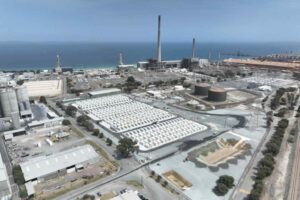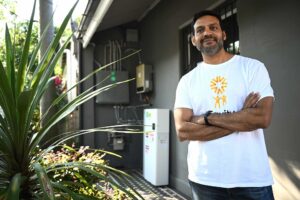Australia’s Clean Energy Council has called on the Morrison government to take the lead on a managed phase-out of the nation’s remaining coal-fired power plants, to avoid a disorderly transition to renewable energy and to repair Australia’s reputation as a climate laggard.
In a statement on Wednesday, the CEC called on the federal Coalition to establish a task force with a mix of relevant stakeholders to consult on a timeline for the closure of Australia’s coal generation industry and the measures required to support it.
And CEC said the federal government should ideally have such a coal exit plan – alongside a net zero emissions commitment – ready to present to the virtual climate summit being hosted later this week by US president Joe Biden, to prove Australia was taking meaningful action on climate change.
“When it comes to closing Australia’s ageing coal-fired power plants, government has a clear role to play in ensuring that the transition is orderly, maintains energy reliability and security, avoids significant price spikes …looks after affected workers and communities, and ensures Australia meets its emissions reduction commitments,” said CEC chief Kane Thornton.
“Around 10,000 Australians are employed in the domestic coal sector, and in some regions, that workforce represents more than 5 per cent of the community. Supporting these workers through a planned transition means providing communities with clarity, certainty and options.”
As it stands, Australia’s federal government has no plan at all for Australia’s transition away from coal – beyond a flurry of market intervention threats issued by energy minister Angus Taylor at any suggestion of plant closures – and has instead turned its focus almost entirely to gas as its new favourite transition fossil fuel of the future.
Nor does it have anything much to offer at this week’s climate summit, where it is rumoured that Biden will be announcing an update to America’s 2030 Paris climate agreement targets, potentially even doubling it to a 50% reduction of emissions by 2030.
Morrison, meanwhile, kicked off a climate action themed week with what essentially amounted to an announcement of further inaction, with a speech to the Business Council of Australia that focused mainly on how net-zero emissions would not be achieved.
“To tackle climate change, we need to take further steps to reduce our emissions and our reliance on fossil fuels,” said the CEC’s Thornton on Wednesday, seeking to re-focus Morrison and his team on the increasingly urgent task at hand.
“The quickest, easiest and cheapest way to begin this process is by decarbonising our electricity system through a massive deployment of renewable energy. Delaying the transition away from coal is not about supporting or protecting jobs,” he added.
“Australia has exceptional potential to do well in a world of ambitious climate change mitigation – but only if we plan, prepare and invest in the emerging low and zero emissions opportunities that are before us. Our standout comparative advantage is, of course, our exceptional renewable energy endowment,” says Thornton.
“Renewable energy can deliver strong economic growth while reducing Australia’s carbon footprint and delivering on Australia’s international commitments. The clean energy industry has been the single biggest contributor to Australia’s emissions reductions over the past decade and has proven its ability to meet and beat any target put in front of it.”








